25 Oct Infoxicación

English Follows | Chinese Follows
En su momento tuve el atrevimiento de definir un neologismo que ha tenido cierto éxito: infoxicación. La palabra surgía para definir la situación de exceso informacional, de intoxicación informacional, en la que tienes más información para procesar de la que humanamente puedes, y, como consecuencia, surge la ansiedad (algo que se ha denominado técnicamente information fatigue syndrome). En inglés el término es information overload (sobrecarga informacional). Pues bien, la infoxicación es ya un problema de nuestra sociedad y, por tanto, también una gran fuente de oportunidades. Cuando definí el término, Google no existía. El spam era, quizás, una predicción de algún visionario al que nadie hizo caso. La situación es hoy peor de lo que podíamos imaginar.
El ancho de banda, en términos genéricos de cantidad de información que recibes por unidad de tiempo, no para, y no parará, de crecer. Los estímulos que recibiremos en forma de mail, audio, video, teléfono, mensajería instantánea, etc., crecen descontroladamente. Es cada vez más barato enviar un bit a donde sea. Pero la variable humana informacionalmente crítica, que es la atención, es justamente la opuesta del ancho de banda: la cantidad de tiempo que podemos dedicar a cada input es cada vez menor, porque debemos repartir la cantidad finita de tiempo del que disponemos a más y más elementos de información. Nuestra atención es ?el? recurso escaso.
Hay que diseñar instrumentos para reducir el ruido informacional que recibimos, y de aumentar la productividad del tiempo de atención de que disponemos. De hecho, ya tenemos herramientas para hacerlo, pero no las usamos debidamente. Por ejemplo, uno puede usar los lectores de feed para recibir automáticamente lo que se va publicando en las páginas que nos interesan, sin necesidad de acudir a ellas, en una evolución de gran calado desde los mass media (medios de masa) a los my media (mis medios). Pero el problema es ser selectivo a la hora de suscribirse a qué espacios.
Pero el punto crítico está, en mi opinión, en comunicar más eficientemente. En sintetizar el mensaje, en presentarlo de forma atractiva, en combinar textos e imágenes y cualquier otro formato que le de riqueza y facilite su comprensión. En explicar historias más que en dar datos. En sintonizar lo que quieres comunicar con el momento de atención del receptor; o sea, en saber encontrar cuándo éste está en el mejor estado de ánimo para poder digerir (metabolizar) la información que se le da. Presentar la información en una dieta informacional que sea útil y emocionante (es información lo que sorprende, no lo que ya sabemos). Porque la información que llega sin criterio o sin pasión, es ruido. Y el ruido molesta.
Infoxicación
Some time ago I was bold enough to coin a new term in Spanish which has enjoyed a certain degree of success: infoxicación. I invented this word -whose literal equivalent in English would be ‘infoxication’- to describe information overload, or information intoxication, i.e. when you have more information to process than is humanly possible and suffer anxiety as a result. The technical term is information fatigue syndrome. ‘Infoxication’ is now a very real problem in our society – although this also makes it a great source of opportunities. When I coined the term, Google did not yet exist. Spam was still just an idea in the head of some ignored visionary. The situation today is far worse than we could ever have imagined.
In terms of the quantity of information you receive per second, broadband just keeps on getting fatter and fatter. We are constantly bombarded by stimuli from emails, audio recordings, videos, telephones and text messages. It is getting easier and easier to send a byte wherever you like. However the critical human information parameter, attention, is the complete opposite of broadband: the amount of time we can devote to each input is getting less and less, because we have to divide the finite amount of time we have available among more and more information components. It is our attention that is in short supply.
We need to design tools to cut down the information noise we receive and make our attention time more productive. In fact, we already have tools to do this, but we don’t use them properly. For example, we can use RSS feeds to automatically receive updates from websites of interest to us without having to visit them. This is a far-reaching evolution from mass media to my media. The trouble is being selective enough when signing up for these services.
In my opinion, the critical issue is communicating more effectively. It is about synthesising the message and presenting it more attractively, combining text and images and any other format that enriches it and aids comprehension. Telling stories rather than giving information. Matching what you want to communicate with the attention time of the person receiving it, i.e. knowing when to catch them when they are in the best frame of mind to digest the information being sent. Presenting information in a handy, appetising diet, since it is fresh information that surprises us, not what we already know. Because information that arrives with no criteria or interest is simply noise. Irritating noise.
由信息所致的脑力中毒
我曾经大胆创造过一个词汇:由信息所致的脑力中毒(原文为一个单词:infoxicación),并且后来得到了相当程度的认可。它是用来描述信息过度时 的一种状态,即信息中毒。在这种情况下,你所拥有的信息量超过了人力所能处理的范围,因此就会产生某种焦虑情绪(专业术语称之为信息疲劳综合症),英语中 我们使用information overload(信息过度负载)这个说法。由信息所致的脑力中毒已经成为当今社会的一个问题,并因此同时带来很多机会。当年我创造这个词的时候, Google引擎还不存在;反垃圾邮件可能是当时最具前瞻性的提议,可是无人理睬。而如今的形势则比我们曾经预想的还要糟糕。
带宽,总的来说是指单位时间内我们收到的信息量,它不停地且将永远不停地增长扩大。我们通过邮件、音频、视频、电话、实时聊天等形式所获得的刺激正以一种 不可控制的方式发展着,向随便一个什么地方发送1比特信息的成本越来越低。但是关注??即可变的人类对于信息的评论活动??恰恰是与带宽相反的:我们所能 用于输入信息的时间越来越少,因为我们得把有限的时间分给越来越多的信息设备。结果使得我们的关注变成?一种?稀缺资源。
因此必须设计一些工具来减少我们收到的信息噪音,提高我们关注时的效率。事实上,我们已经拥有类似的工具了,但它们并没有得到恰当的使用。比如,通过 feed阅读软件自动获取网络中我们感兴趣的那部分信息,而不需要亲临每一个页面去浏览。也就是一个从大众传媒走向个性化传媒的大规模演化过程。可问题在 于,在预定网页时我们要有所选择。
然而依我看来,问题的关键在于如何更有效率地沟通:如何概括信息,如何以愉悦的方式展示信息,如何搭配文字及视觉信息或其他任何可以丰富和简化我们理解的 形式;如何讲故事而非罗列数据,如何把你想表达的内容与当时听众的反应和谐统一起来,即学会发现何时他的状态最佳、最能消化他所接收到的信息。用一种精细 的食谱、以实用并有感染力的方式展示信息(只有信息才会让人惊奇,而非那些我们早已知道的东西),因为没有观点和激情的信息是噪音,而噪音,是恼人的。



Sorry, the comment form is closed at this time.